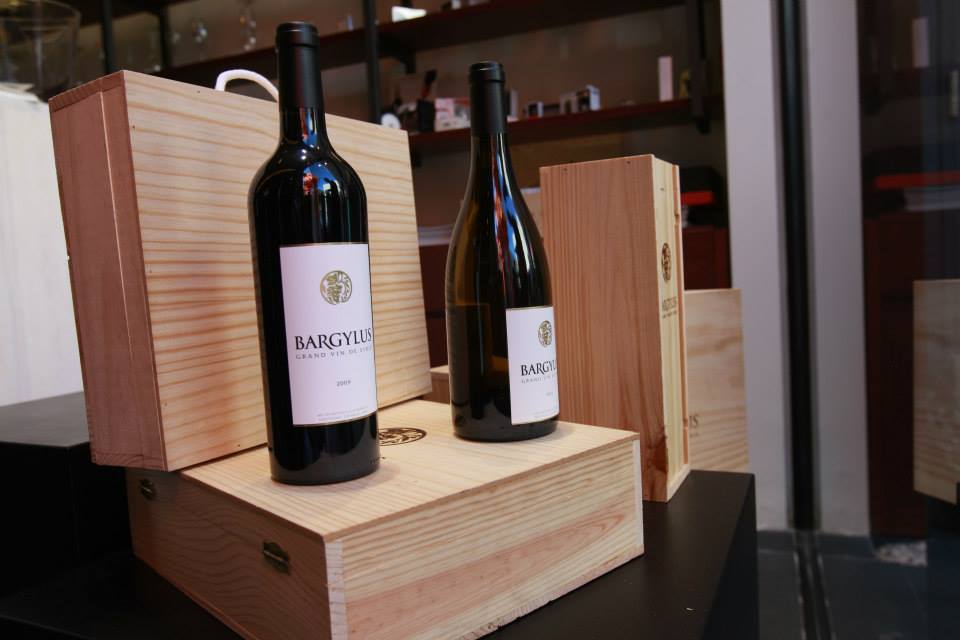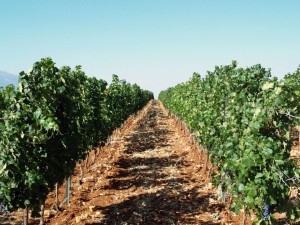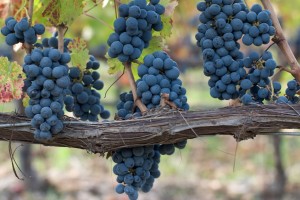
By Munawwar Ahmed
In the wake of Syria’s deteriorating business environment and shattered economy, the Saadé family is putting the country on the global map, and this time around, for the right reasons. The efforts of Lebanese-Syrian brothers Sandro and Karim Saadé has earned the fledgling Syrian wine industry global recognition, with an average production of 55,000 bottles per year.
Starting afresh almost a decade ago, the Saadé brothers’ Domaine de Bargylus is the first Syrian wine produced to international standards.
With the help of renowned Bordeaux vigneron and consultant, Stéphane Derenoncourt and the support of former head sommelier for the Gordon Ramsay group, Ronan Sayburn MS, the export-quality wine has made its way to tables in London, Paris, Dubai and is not being served by the glass in the UK’s high-end restaurants, including Gordon Ramsay and Marcus Wareing.
Sayburn says he has been “opening the eyes of a few sommeliers in London” to the wines of Syria.
“I’ve been approached by a few wineries to do something like this, but I would only represent something quality-oriented with longevity,” said Sayburn. “I would lose credibility unless I worked with a high quality project with a future.”
Citing the booming elite restaurant business and the region’s openness towards international wines, the brothers are confident that the European market would soon account for the largest proportion of their business.
The Challenges of Syrian Viticulture
The Domaine de Bargylus winery, after which the brand is named, encompasses 20 hectares on the mountainous terrains of the Latakia in the Al Ansariyah region in northwestern Syria.

Situated in a high quality terroir close to the sea, the châteaux produces red and white wines as the only wine export from Syria that meets the rigorous international standards.
The Saadé family also has a winery in Lebanon, Châteaux Marsyas, located in the Bekaa Valley that was launched a year after Bargylus. The family says their desire to start wineries in two different regions reflects their desire to make distinct wines that reflect the terroir – a French term that denotes the characteristics of a region’s geography, climate and soil that give wine its unique flavor and aroma.
“As a family, we do wines that express the terroir – that is the approach. We are not attracted to wines that are generic wines and express only the style of a person – no. The main main main focus is how to express the terroir,” said Sandro Saadé. “The move to come back and have Bargylus is definitely also a way to come back to the land of our origins – to say we’re still here, we want to stay here, we haven’t left … Once you plant your vineyard, you’re marking your place, you’re putting a stone and you’re saying I’m here to stay.”
Reviving a 3,000 year-old tradition in Syria, however, has proven to be nothing short of a challenge for the brothers, starting with the establishment of a framework for viticulture in the region. With the absence of an official quality control system to determine the origin for the grapes, all controls had to be self-enforced.
As time progressed in the region terrorized and torn apart by war, visits to the winery itself by the Saadé brothers soon became impossible.
“Even before the conflict, it was challenging,” said Saadé. “Neither Karim, our wine consultant, Stephane Derenoncourt, nor I have been able to go there for almost two years. Decisions regarding harvest are based on refrigerated clusters of grapes sent to us in Lebanon for analysis, and all communication is being done by mobile phone.” The grape samples from the winery are usually sent in refrigerated packs by taxi into Lebanon for approval.
Aside from the challenges of building the brand on an international scale, the bottles cannot be shipped directly to Europe unless they go through Egypt and Lebanon first. According to Derenoncourt, “if you need barrels, you need to plan six months before.”
In the highly unstable region where many a business has perished, the repercussions of the conflict were sure to reverberate through the Saadé businesses. In August last year, militants engaged in a vicious conflict a mere 500 meters from the winery, resulting in bullet holes in the winery. Luckily enough for the business, the winds of fate has blown the combat away from the châteaux for the time being.
The Future of Syrian Wine
While striving to live up to and maintain international standards, the brothers also stress that they are making efforts to “to avoid the ethnic label.” They say a lot of Lebanese proprietors have also avoided stocking Bargylus simply because of their Syrian origin.

However, according to Saadé, in “blind tastings, people almost never can say it comes from Syria or even Lebanon, because the product has a lot of freshness, it has soft complexity.”
Although the output is small compared to other more established international wineries, quality has always been a top priority. From importing state of the art equipment to using bottles made in Bordeax, the Saadé brothers are determined to put a positive image of both Syria and Lebanon in the wine business.
Already on the shelves of exclusive wine boutiques such as Lavinia in Paris and British retailer Philglass & Swiggot as a high-end product, the Bargylus brand is certainly painting Syria in a different light.
Despite the tumultuous situation and challenges, the Syrian product is also set to infiltrate the Swiss, Belgian and Turkish markets soon with additional plans to expand into new and high quality terroirs, and boost volume production to cater to growing needs.
”Wine ties you to the land,” said Karim Saadé. “You cannot just pack up and leave. It’s a signal to yourself and to others.”





























Interesting. I didn’t even know there was a wine industry there.
[…] on the other hand, Lebanon’s growing microbrewery business highlights a regional trend towards producing quality, locally produced beverages that capture the culture, heritage and lifestyle of the […]